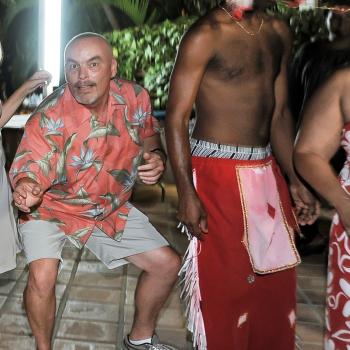Nick Hornby's High Fidelity is one of my favorite books, and I love the film adaptation as well. It's the story of Rob (played by John Cusack in the movie), the owner of a record store who, after yet another failed relationship, embarks on a quest through his romantic past to figure out where it all went wrong. Rob is an obsessive list-maker and so, naturally, he makes a list of his top five worst break-ups. All of this introspection and list-making leads him back to one person, Charlie Nicholson, the girl who broke his heart in college.
In a memorable bit of reflection about the end of his relationship with Charlie, Rob notes that "sometimes it seems that everything that happened to me since [that time] were just minor distractions." He continues, "Some people never got over the sixties, or the war, or the night their band opened for the Rolling Stones at the Marquee, and spend the rest of their days walking backwards; I never really got over Charlie."
Count World Magazine editor-in-chief Marvin Olasky among those who never quite got over the '60s.
A former atheist and Marxist, Olasky has come a long way from his '60s self. In a recent column in World, however, he shows the lingering psychological and spiritual effects of that tumultuous decade. His thesis is shaped around Neil Diamond's famous 1969 song "Sweet Caroline." Diamond begins the song by singing, "Where it began, I can't begin to know when," and Olasky answers by writing, "I know when our national craziness began: in the 1960s."
During the '60s, Olasky suggests, "the American left thought we could put an end to hardship." He cites no-fault divorce and abortion, arguably results of the social reforms of the '60s, before suggesting that not working was a solution to work being a "bummer," and joining communism was an answer to the Cold War. At least, I think that's his argument. In the second paragraph, he starts to lose the thread.
He jumps from foreign policy to praise of the Reagan administration, to a skewering of a website set up by the AIDS Action Committee and the Massachusetts Department of Health, and then to a bit about the minimum wage in Maine, all by way of proving that "many liberal leaders (particularly in New England, where I grew up) are still living in the 1960s."
That actually may be true. I grew up in New England too, and I've always been proud of the region's progressive politics. But suggesting that services like pregnancy counseling are an effort to "banish hardship," and that this is somehow the spirit of the 1960s, misses the mark.
I don't deny that we are still living in the legacy of the '60s. I can't deny this. My parents, and most of my friends' parents, were shaped in that powerful decade. The teachers, preachers, and politicians who filled our ears in our formative years were all children of the '60s.
I realize that I'm not on equal footing with Olasky in a myriad of ways. He was actually alive in the '60s; I was not. Yet I can say with confidence that the progressive legacy of that time period, which I have proudly inherited, has little to do with banishing hardship. On the contrary, when one begins to take seriously the spirit of the Civil Rights Movement, and other progressive reforms of the era, one begins to see that there are many difficult questions that must be asked and answered in order to assure that the easy pattern of discrimination and oppression is held at bay.
In evangelical circles, a recent controversy that came to bear over the weekend provides a case in point for the hardships faced by an organization that strives to be progressive. The trans-denominational movement Believe Out Loud, which seeks to promote LGBT-inclusion in Christian churches, attempted to buy advertising space at the website of progressive evangelical magazine Sojourners. The ad features a video in which a family of two mothers and a young boy attempts to find places to sit in a church. The congregation greets the family with cold stares, giggles, and outright rejection, until the minister speaks the only words in the ad, "Welcome, everyone." The powers-that-be at Sojourners rejected the ad, and supporters of Believe Out Loud took their indignation to the blogosphere.
At Religion Dispatches, the Reverend Robert Chase, founding director of Intersections International—the parent organization of Believe Out Loud—broke the news. He cited a statement from Sojourners that indicated that their position is to "avoid taking sides on this issue." In the days since, many people, including Sojourners' founder Jim Wallis, attempted, without much success, to further clarify the organization's decision.





